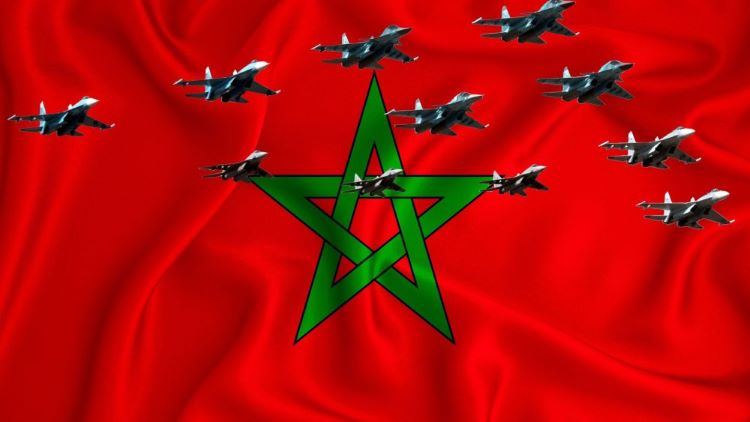Oscar Ruiz -Escudo Digital
In a recent high-level strategic meeting between Morocco and the United States held on February 6, key issues related to strengthening military cooperation and promoting peacekeeping initiatives were addressed. This meeting, which took place at the headquarters of the General Staff of the Royal Armed Forces (FAR) of Morocco, was attended by the Inspector General of the FAR, Mohammed Berrid, and the US Deputy Undersecretary of Defense for African Affairs, Jennifer Zakriski.
The meeting highlighted a solid relationship between the armed forces of both countries, which lately is characterized by frequent and regular cooperation. This collaboration is reflected in a series of joint activities and in the existence of a defined roadmap for the period 2020-2030, signed during the visit of the US Secretary of Defense, Mark Esper, to Morocco in 2020. Said strategic plan seeks to strengthen the bilateral military alliance to face joint security challenges, encompassing strategic discussions, joint training exercises and mutual support in terms of financial aid and equipment supply.
The central aspect of the talks was the improvement of Morocco’s military arsenal, thanks in part to the acquisition of materials and equipment with the necessary technical and logistical support from the United States. This focus on modernizing and strengthening Moroccan military power includes technology transfer and collaboration in the defense industry, which could have significant implications for the security dynamics in the North African region and of course Spain.
We summarize here the press release from the United States Government regarding these agreements with Morocco:
“The US State Department has approved a possible sale of military materiel to the Government of Morocco, specifically Joint Ranged Strike Weapons (JSOW) and related equipment, with an estimated cost of $250 million. This decision, communicated to Congress by the Defense Security Cooperation Agency, involves Morocco’s acquisition of forty (40) AGM-154C JSOW missiles, along with a range of additional equipment including Dummy Air Training Missiles, Vehicles Captive Flight Vehicles (CFVs), Free Flying Vehicles (FFVs), and containers.”
“The sale also covers comprehensive support services, such as mission planning, integration, testing, security and training for ammunition storage, software development for the weapon’s operational flight program, as well as transportation, tools, test equipment, support equipment, spare and repair parts, publications and technical documentation, personnel training and training equipment. It also includes engineering services and logistical support by the US Government and contractors.”
“This transaction aims to improve the security of Morocco, a Major Non-NATO Ally, by supporting its political stability and economic progress in North Africa. Morocco’s acquisition of JSOWs aims to strengthen its capacity to confront current and future threats, especially by improving the defense of critical sea routes through the use of these missiles on its F-16 multirole combat aircraft. “This step aligns with Morocco’s efforts to increase its maritime partnership potential and align its military capabilities with regional baselines.”
“The sale is not expected to alter the basic military balance in the region and will be conducted without adverse impact on US defense readiness. The prime contractor for this sale is Raytheon Missiles & Defense Company, located in Tucson, Arizona, and no offset agreements have been proposed in connection with this sale. Implementation will require annual trips to Morocco by U.S. Government representatives and contractors for oversight and technical support for approximately seven years. Notification of this potential sale is a legal requirement, with the value and quantity described as estimates based on the initial requirements.”
Morocco’s military buildup and upgrade, supported by the United States, raises questions about the balance of power in the region, especially in relation to Spain. The growing Moroccan military capacity, enhanced by this cooperation, could influence future diplomatic and security relations between Morocco and its neighbors, including Spain. The modernization of the Moroccan army, especially in a context of recent tensions and territorial disputes, such as the Western Sahara issue, adds a layer of complexity to bilateral relations between Morocco and Spain.
This military buildup, in a context of evolving strategic alliances, suggests a potential shift in the balance of power in the Mediterranean. The Morocco-US military collaboration not only underlines the importance of Morocco as a strategic ally of the United States in Africa, but also signals a possible reconfiguration of the regional security architecture, which will undoubtedly attract the attention of defense analysts and political leaders, especially in Spain, where the implications of a militarily strengthened Morocco are analyzed with great caution.







